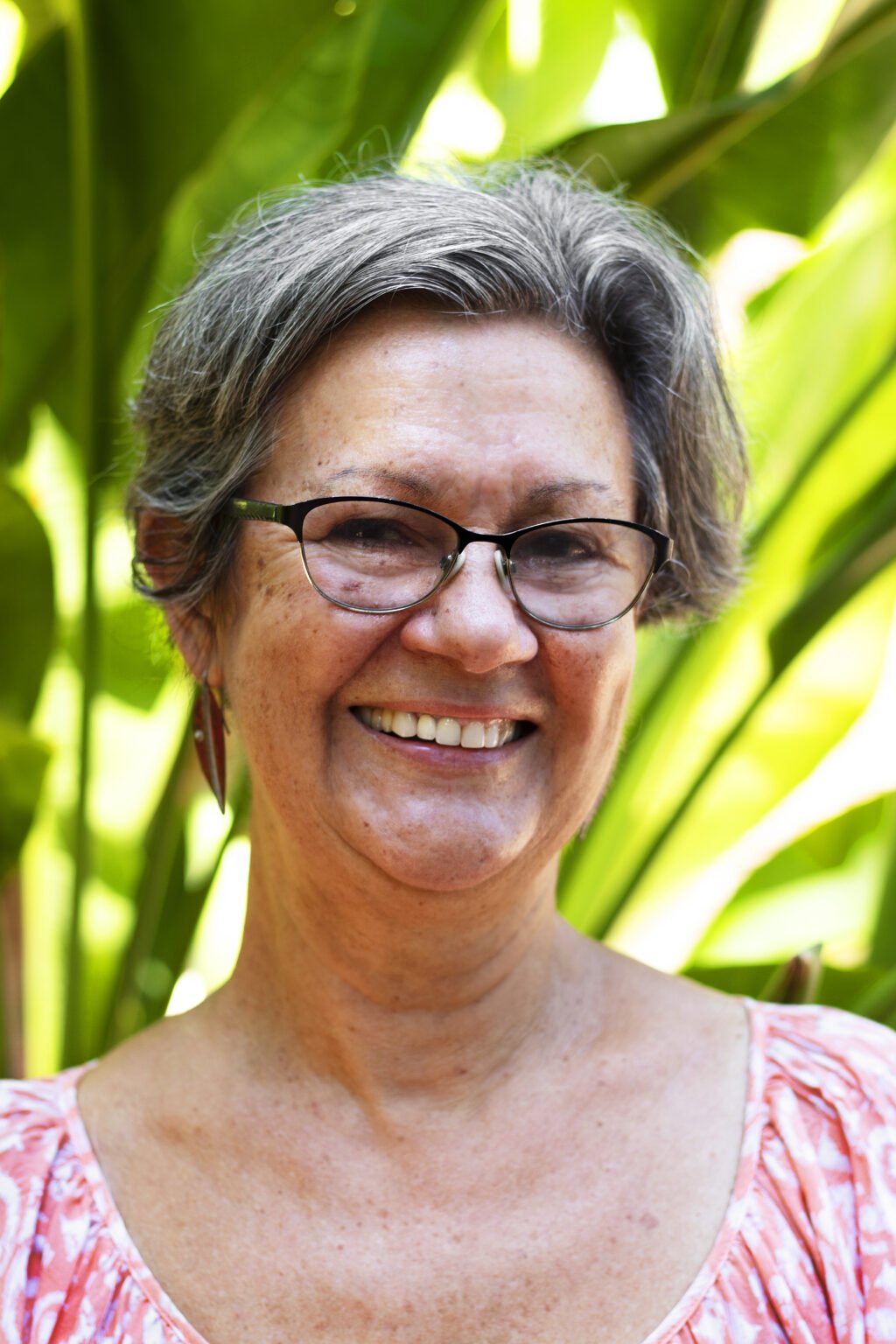Julie is committed to teaching in the Territory with a focus on Aboriginal capacity building through supporting language and culture
Julie Donald is an experienced educator, focused on the benefits of bilingual education, writes Project Officer Melody O’Meara
Since commencing teaching at 26 in 1985, Julie has had only a few years outside of the Department, including one with the NT Police, Fire and Emergency Services. She is proud to have written their inaugural Aboriginal Career Development Strategy but “does hope they have updated it since then”. During these short stints outside of education, she was always a union member, articulating her belief that “as individuals, we don’t always have the information we need” and that “as a collective you have a stronger voice.” She also worked in areas such as mentoring, English as a Second Language teaching, Aboriginal and Torres Strait Islander unit management, Catholic education and lectured at Batchelor in the original Remote Area Teacher Education (RATE) program. She has fulfilled a number of sub-branch roles over time and attended an AEU Federal conference as an Indigenous NT member in the early 2000’s.
Julie laughs upon remembering that she found her way into university as a ‘mature age’ student at 21 through an unwanted scholarship in Home Economics. The move to Aboriginal Education seemed obvious. After completing her studies in NSW, she began her teaching career at Shepherdson College, Galiwinku before moving out to Homelands. She has taught at many NT schools over the years including Ramingining, Yirrkala, Groote Eylandt, Milingimbi, Willowra, Anula, Wulagi and Wagaman. She is pleased to have now “come full circle”, completing her teaching career back on Elcho Island as a teacher linguist.
Julie’s heritage is the Northern NSW Bandjalung people and is a motivating force for her involvement in Aboriginal education. She credits her “strong commitment to language and culture” for the development of her early interest in Indigenous capacity building. This reached fruition when she taught Aboriginal education students at Batchelor College, leading to her participation in the first incarnation of the soon-to-be-revived RATE program.
Julie remembers RATE program delivery on Elcho Island and Milingimbi, as “…strongly contextualised…unpacking curriculum, talking two-ways and learning what that meant.” The “cross-pollination” students experienced by attending Batchelor College sometimes was valuable and they enjoyed it, but remains adamant that Indigenous students are “much better positioned to learn from within community” and that any new incarnation of the program must be “community-based, culturally responsive and creative, offering multiple methods of delivery and, above all, be properly funded.” She cannot emphasise enough that “despite the initial outlay seeming like a lot, the presence of local teachers in those classrooms directly impacts on student attendance.”
Julie’s advice for teachers new to remote teaching is “arrive as a learner, deliver a curriculum with meaning. We come to remote Indigenous contexts with many assumptions and cultural biases. Listen, be a learner and take things slowly.”
“The best thing about teaching is forging connections and watching growth, including adults, especially in cross-cultural contexts.” She reminds us to “never underestimate the power of a student’s memory” and shares how she was recently “sitting on a Darwin bus, wondering why these young girls were staring, one called me Mrs D, said I was her favourite teacher and that I always encouraged her to do her best.”
As Julie reflects on her career and 17 years of unionism, she describes the system as “an unwieldy machine” and how, “in the changing face of education, the union provides alternate viewpoints, information and support that can inform critical decisions. Teachers need bargaining power and the union is our representative body.”
This article was also published in the Term 3-4, 2020 edition of the Territory Educator magazine.
More information
Download this article as a PDF

